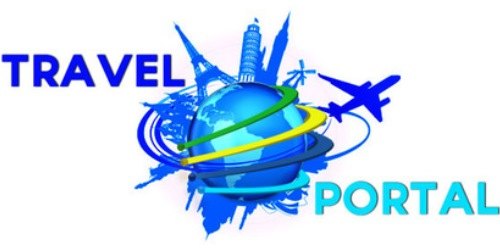
Companies have changed the way they handle travel in amazing ways because they need to be able to make decisions quickly and efficiently. Businesses used to rely on spreadsheets, manual booking systems, and a patchwork of vendors to plan business trips. Now, they are using the business travel portal as a central place to manage all of their trips. This digital revolution has made business travel easier, cheaper, more compliant with rules, and based on data. This blog looks at the rise of the business travel portal, its main benefits, current trends, and what it means for the future of managing corporate travel.
The History of Managing Business Travel
Corporate travel has always been a necessity for expanding markets, attending conferences, and building relationships. In the past, managing travel was a lot of work for the people in charge. Travel managers had to deal with a lot of different booking sites, paper receipts, and manually matching up expenses. This method took a long time, was likely to make mistakes, and wasn't very clear.
The business travel portal has changed everything. These portals offer a complete solution that lowers friction and boosts productivity by bringing together booking, expense reporting, policy enforcement, and real-time analytics into one place.
What is a portal for business?
A business travel portal is a website that helps businesses plan and book all kinds of business trips. Booking flights and hotels, managing itineraries, keeping track of expenses, enforcing policies, and helping with travel are all common features. Its focus on business needs, like centralised billing, tracking employees, following travel policies, and connecting with HR or accounting systems, sets it apart from consumer travel sites.
Using a business travel portal gives both travellers and travel managers more power. Employees can make their travel plans as long as they follow company rules. Managers can see and control travel spending and compliance.
Why You Should Use a Business Travel Portal?
Using a business travel portal has a lot of benefits, such as:
1. Keeping costs down and saving money
Cost management is one of the best reasons to use a business travel portal. These sites often have deals with airlines and hotels that let you pay less. Also, centralised booking stops people from booking the same thing twice or paying too much.
2. Following the Rules
A business travel portal makes sure that company travel rules are followed. This means that employees can only book within certain limits, which cuts down on unauthorised costs and makes it easier to follow the rules.
3. Data and analysis in real time
Modern portals have analytics dashboards that let travel managers see how much money they're spending, how they're using their budget, and when they're breaking the rules. This information helps you make better choices.
4. Better experience for users
Users of a business travel portal can book their trips more easily, just like they would on a consumer travel website. The easy-to-use interface makes it easy for people to help themselves, which frees up HR and admin teams.
5. Duty of Care and Safety
Keeping track of where employees are when they are travelling is an important part of the duty of care. A business travel portal helps companies find and help employees in case of an emergency.
Trends That Are Making Business Travel Portals More Popular
There have been several trends that have led to the growth of the business travel portal:
1. Work from home and hybrid models
There is a greater need for flexible travel management now that more people are working from home. A business travel portal helps teams that work from different places by letting them book their travel and access it from anywhere.
2. Emphasize sustainability
Companies are being pushed to lower their carbon footprints by corporate sustainability goals. A business travel portal can keep track of how much pollution each trip causes and suggest more eco-friendly options.
3. The need for personalisation
Travellers these days want experiences that are unique to them. The business travel portal uses user data to make personalised suggestions, which makes people happier and more productive.
4. Working with other tech systems
Companies want tools that work well with the systems they already have. The business portal of today works with calendars, CRM tools, and expense management software to make work easier.
Business Portals: Case Studies of Success
Company A: Making Travel Easier for a Growing Team
A global tech company that was quickly hiring new employees had trouble managing travel. They cut the time spent on travel-related tasks by 60% and the costs by 20% in the first year by using a business portal.
Company B: Making it easier to follow the rules in a regulated industry
A drug company needed people to follow strict rules when they travelled. The business portal automatically flagged bookings that didn't follow the rules, which helped the company stay out of trouble with the law and with audits.
What will happen next with business portals?
The business portal has a bright future. These platforms will get smarter and better at predicting things as AI and machine learning technologies get better. Dynamic pricing alerts, automatic expense categorisation, and AI-powered itinerary planning are just a few of the features that are available.
We can also look forward to better mobile features. A mobile-first business portal will let users book, change, and get help on the go, which is becoming more and more important for business travellers today.
Blockchain could also help the business portal grow and change. Blockchain could change the way bookings and payments are handled by promising safe, open transactions and smart contracts.
How to Pick the Best Business Portal
There are differences between portals. Companies should think about the following when choosing a business portal:
Ease of Use: The interface should be easy to understand and use.
Customisation: Is it able to work with your approval and travel policy?
Integration: Can it work with your current HR, accounting, or ERP systems?
Customer Support: Is there customer support available 24 hours a day, seven days a week for travellers?
Are the payment and personal information of your employees safe?
A pilot test with a small group of employees can help you see how easy it is to use and find any problems before you roll it out to everyone.
Some common problems and how to fix them
Even though a business portal has many benefits, it can also be hard to set up:
1. Not wanting to change
Employees who are used to booking their travel may not want to switch. Training and clear communication about the benefits of the business portal can make this change easier.
2. Problems with integration
It may take IT resources to connect the business portal to older systems. Choosing a vendor that offers strong API support and onboarding services can help with these problems.
3. Making sure that policies are followed
Even though the portal enforces rules, some employees may still try to get around them. Regular audits and feedback loops can help keep things in line.
Conclusion
The business travel portal is a sign of a new era in managing corporate travel. Companies that want to streamline operations, make sure they are following the rules, and get a better idea of their travel spending should use these platforms. As technology keeps getting better and safety and flexibility become more important, the business travel portal will become an essential tool for any company with mobile workers.
A business travel portal could be the key to making your travel program smarter and more flexible, whether you're a fast-growing startup or a multinational looking for ways to save time and money.

 Start your Travel Business with Our 7 Day Free Trial Website!
Start your Travel Business with Our 7 Day Free Trial Website!





